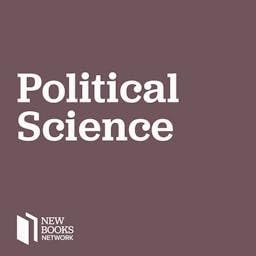Political Theorist Laura Field has written an insightful and detailed exploration of the people and the ideas that have shaped the second Trump Administration (and some contributed, as well, to the first Trump Administration.) While Furious Minds: The Making of the MAGA New Right (Princeton UP, 2025) is about quite a few scholars and academics, it is written like a propulsive page-turner of a book. And Field takes us through all the of the ins and outs of the individuals who have pursued a path to power and policy development, often from positions in the Ivory Tower. Furious Minds: The Making of the MAGA New Right is truly fascinating, since it is not simply about egg-headed academics writing up white papers or books, or simply about presidential advisors and the way they have worked to influence the president or put particular policies into place. Instead, Field interrogates the construction of the ideas that have come to dominate this New Right, seeking their genesis and how these ideas, which are divided into three distinct but overlapping intellectual camps, have made their way to the Trump Administration, through Trump himself, Vice President J.D. Vance, and so many of the advisors and cabinet members who surround Trump. Field’s training in political theory, especially Straussian political theory, contributes to her understanding and analysis of the individuals at the heart of the story in Furious Minds—and how these particular academics think, but in particular how they think about politics and political projects. The substance of Furious Minds is focused on the past decade or so of engagement between these various schools of thought and the Trump Administration—both while in elected office as well as during the out of office interregnum. At the same time, Field traces the deep origins of some of these schools of thought through the longer conservative tradition in the United States. In our discussion, we explore the Claremonters, the Postliberals, and the National Conservatives. Each group is populated by well-educated (PhDs, published authors, etc.) individuals (mostly men) who are urging a concept of the common good, as they define it, on to the American people, through the Trump Administration’s rhetoric, policies, institutional dispositions, cultural approaches, and general demeanor. Field takes all of these thinkers and ideas seriously, making the case for understanding both the ideas themselves and their origins, while also critiquing much of this by exposing the more extremist bases behind these paths of thinking as well as the people who are purveying them. Furious Minds: The Making of the MAGA New Right is a tour de force of the intellectual and political landscape that has brought us to the midst of the second Trump Administration and provides the reader with deep insight into the radical origins of the myths and concepts that are the backbone of the current Trump Administration and the current Republican Party. Lilly J. Goren is a professor of political science at Carroll University in Waukesha, WI. She studied political theory at Kenyon College and Boston College. She is co-host of the New Books in Political Science channel at the New Books Network. She is co-editor of The Politics of the Marvel Cinematic Universe Volume I: The Infinity Saga (University Press of Kansas, 2022), and of The Politics of the Marvel Cinematic Universe Volume II: Into the Multiverse (University Press of Kansas, 2025) as well as co-editor of the award winning book, Women and the White House: Gender, Popular Culture, and Presidential Politics (University Press of Kentucky, 2012). She can be reached @gorenlj.bsky.social Learn more about your ad choices. Visit megaphone.fm/adchoices Support our show by becoming a premium member! https://newbooksnetwork.supportingcast.fm/political-science
Más
Menos
 1 h y 9 m
1 h y 9 m 1 h y 4 m
1 h y 4 m Feb 15 202645 m
Feb 15 202645 m Feb 13 202629 m
Feb 13 202629 m 43 m
43 m Feb 11 20261 h y 12 m
Feb 11 20261 h y 12 m 58 m
58 m 46 m
46 m
